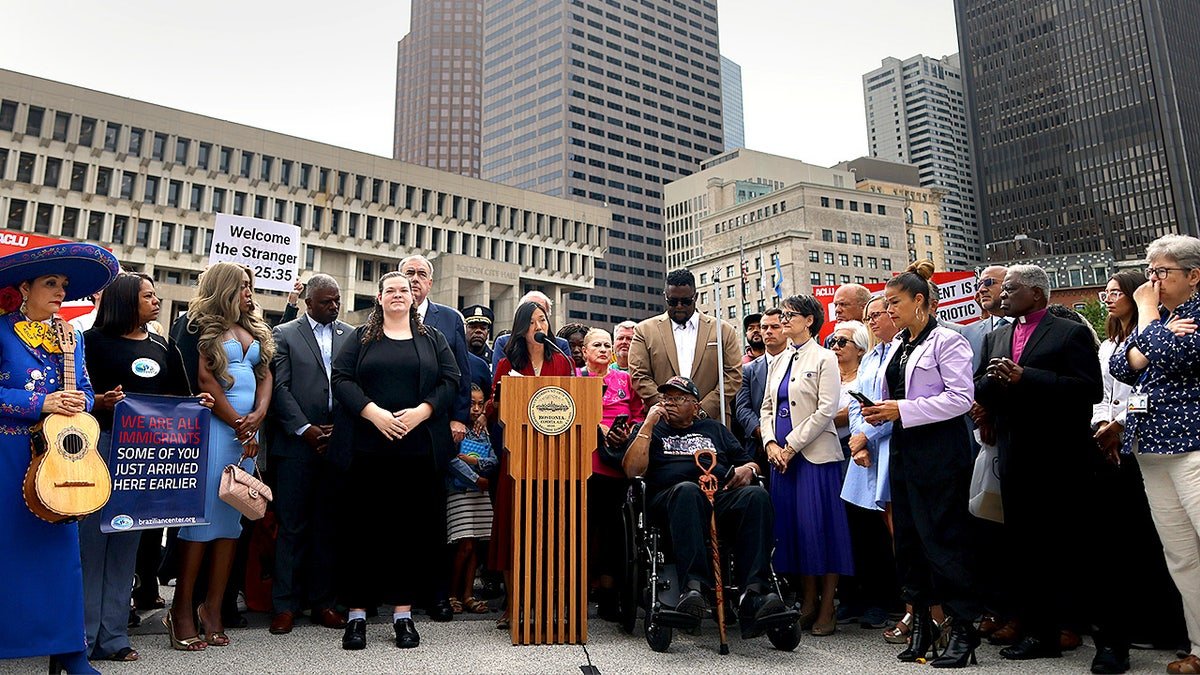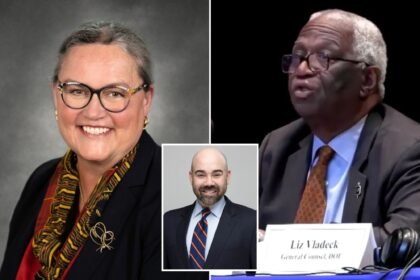Former Attorney General William Barr Discusses Jeffrey Epstein’s Possible Intelligence Connections
In a recent deposition before the House Oversight Committee, former Attorney General William Barr addressed the long-standing speculation surrounding Jeffrey Epstein’s alleged ties to intelligence agencies. Barr’s comments have reignited discussions about Epstein’s controversial past and the implications of his connections with powerful figures.
Epstein and Intelligence Agencies: A Complex Relationship
During his testimony, Barr suggested that Epstein’s rumored connections to U.S. intelligence could stem from the CIA‘s practice of engaging with well-connected individuals. “Many American businessmen who have foreign contacts sometimes will talk to intelligence agencies and provide information to them,” Barr explained. He noted that the CIA has a unit dedicated to interacting with influential figures to gather insights and information.
However, Barr clarified that he does not believe Epstein was formally working for the CIA. “This is not, in my opinion, based on what I saw, I didn’t think it was an intelligence operation,” he stated, emphasizing that he had not received any information to suggest otherwise. This assertion adds a layer of complexity to the ongoing narrative surrounding Epstein, who was indicted on federal charges for sex trafficking minors in July 2019, shortly before his death in a New York City jail.
Barr’s Background and Context
William Barr’s extensive background in law and intelligence lends weight to his statements. He began his career at the CIA in the 1970s and has served as Attorney General under two different administrations: first under President George H.W. Bush, a former CIA director, and later under President Donald Trump. His unique perspective on the intersection of law enforcement and intelligence operations provides a valuable context for understanding the implications of Epstein’s connections.
Despite his experience, Barr’s comments have not quelled the myriad conspiracy theories surrounding Epstein’s life and death. He attempted to dispel some of these theories during his deposition, particularly those involving his own family. Barr noted that the connection between his father, Donald Barr, a former headmaster at the Dalton School, and Epstein was “not pertinent at all.”
The Circumstances of Epstein’s Death
Epstein’s death in August 2019, ruled a suicide by authorities, has been a focal point for speculation. Barr expressed his conviction that Epstein was not murdered, citing a prior suicide attempt while in custody. He acknowledged the controversy surrounding missing security camera footage from the time of Epstein’s death, attributing it to outdated technology rather than foul play.
The circumstances of Epstein’s demise have fueled ongoing debates about accountability and transparency within the justice system. Attorney General Pam Bondi’s July memo, which stated that Epstein “harmed over one thousand” girls and young women, further complicated the narrative. Despite the extensive harm caused by Epstein, the memo concluded that there was insufficient evidence to charge anyone other than his accomplice, Ghislaine Maxwell, who is currently serving a 20-year sentence.
Congressional Inquiries and Public Interest
The House Oversight Committee’s inquiry into Epstein’s associations has gained momentum, particularly following Bondi’s memo, which controversially stated that “no further disclosure” about the case “would be appropriate or warranted.” This statement has prompted calls for more transparency and documentation regarding Epstein’s connections, especially given the high-profile individuals involved.
Both Bondi and Director of National Intelligence Tulsi Gabbard have publicly stated that they are unaware of any formal relationship between Epstein and intelligence agencies, yet they have not ruled out the possibility. This ambiguity continues to fuel public interest and speculation about Epstein’s life and the potential implications of his connections.
Historical Context and Speculation
The speculation surrounding Epstein’s ties to intelligence agencies is not new. Former Miami U.S. Attorney Alex Acosta’s controversial 2008 plea deal for Epstein has been scrutinized, particularly his claim that he was told Epstein “belonged to intelligence” and to “leave it alone.” This statement has led to years of conjecture about whether Epstein was involved in espionage or served as an asset for U.S. or foreign intelligence agencies.
Additionally, Epstein’s connections to Israel’s Mossad have been a topic of discussion, especially considering Ghislaine Maxwell’s father, Robert Maxwell, was reputed to have ties to the Israeli spy agency. Epstein’s close association with former Israeli Prime Minister Ehud Barak, documented through numerous interactions between 2013 and 2017, has further fueled these theories.
The Broader Implications
The Epstein case continues to reverberate through political and social spheres, raising questions about power, accountability, and the intersection of crime and intelligence. As investigations unfold, the implications of Epstein’s connections to influential figures and potential intelligence operations remain a topic of intense scrutiny.
The ongoing inquiry by the House Oversight Committee reflects a broader societal demand for transparency and justice, particularly for the victims of Epstein’s crimes. The complexities of Epstein’s life, his connections, and the circumstances surrounding his death serve as a reminder of the intricate web of power and influence that can exist behind closed doors.
Conclusion
William Barr’s recent comments regarding Jeffrey Epstein’s potential ties to intelligence agencies have reignited discussions about the late sex trafficker’s controversial past. While Barr does not believe Epstein was formally affiliated with the CIA, his insights shed light on the complex relationships between powerful individuals and intelligence operations. As investigations continue, the demand for transparency and accountability remains paramount, particularly for the victims of Epstein’s heinous actions. The Epstein case serves as a stark reminder of the need for vigilance in the pursuit of justice and the importance of addressing the darker aspects of power dynamics in society.











